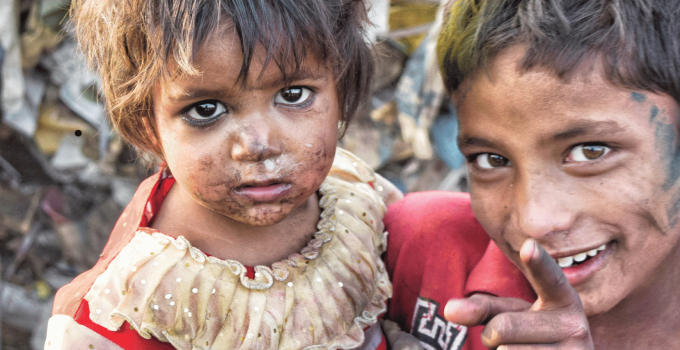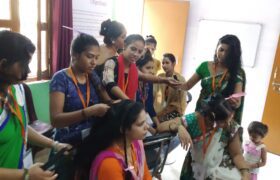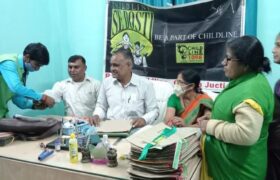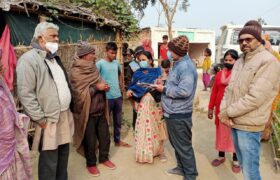When a child finds their forever home, it has a profoundly significant effect. More than just legal documents, it’s a tale of courage, love, longing, and fresh starts. In a nation where millions of children are raised without parental supervision, adoption becomes a sincere act of healing and optimism.
In India, adoption is about providing a child with a life full of opportunity, joy, and belonging, not just a place to call home. And process and guideline by CARA sets the standard for a transparent, moral, and safe journey.
What is CARA?
CARA’s Mission and Legal Framework
The goal of CARA is straightforward but profound: to guarantee that every child is raised in a loving, stable, and safe home. It ensures that all adoptions are morally righteous and focused on the child’s needs by operating under the Juvenile Justice (Care and Protection of Children) Act, 2015.
Who Can Adopt in India?
Eligibility Criteria for Prospective Adoptive Parents (PAPs)
- Must be physically, mentally, and emotionally stable.
- Should not have any life-threatening medical conditions.
- Should be able to offer a warm, nurturing home where a child feels truly safe, cherished, and unconditionally loved.
- Age and Marital Status Requirements
- A single woman, guided by love and determination, has the beautiful freedom to welcome a child into her life — regardless of the child’s gender.
- Single men can only adopt a male child.
- In the case of a married couple, both should consent.
- There is a minimum age gap of 25 years between the child and the adoptive parent.
- Adoption by LGBTQ+ Individuals: Though there is progress, same-sex couples still face legal and systemic barriers in India. However, single LGBTQ+ individuals are legally allowed to adopt.
Types of Adoption in India
In-country Adoption
This refers to adoption within India by Indian citizens. It is processed through CARA and its network of Specialised Adoption Agencies (SAAs).
Inter-country Adoption
This is for Non-Resident Indians (NRIs), Overseas Citizens of India (OCIs), and foreign nationals. CARA coordinates with authorised foreign adoption agencies.
Relative and Step-parent Adoption
Legal provisions also permit adoption by relatives or step-parents under specific conditions. These do not always follow CARA’s standard protocol but require court approval.
Step-by-Step Adoption Process under CARA
Step 1: Registration
Begin your journey toward parenthood by registering your intent to adopt on CARA’s official portal — a small click at www.cara.wcd.gov.in could lead to a lifetime of love and belonging.
Step 2: Home Study Report (HSR)
A licensed social worker visits your home to assess your readiness. The Home Study Report is a critical step that validates your ability to care for a child.
Step 3: Referral and Child Matching
Through the portal, you’ll be gently introduced to children who are legally free for adoption — each one carrying a silent hope for a loving home. When a child’s face touches your heart, you can reserve your intent and visit the Specialised Adoption Agency (SAA) to meet them, beginning a bond that could last a lifetime.
Step 4: Acceptance and Pre-adoption Foster Care
If you bond with the child and are confident, you sign the acceptance letter and take the child under pre-adoption foster care.
Step 5: Legal Procedures and Court Order
A heartfelt petition is submitted to the District Court/District Magistrate, marking the final step in turning love into law. Once the court grants its approval, you are not just emotionally, but legally embraced as the child’s forever parent.
Step 6: Post-Adoption Follow-up
CARA mandates regular post-adoption check-ins by social workers to ensure the child is well-adjusted and cared for.
Documents Required for Adoption
- Identity proofs (Aadhaar, PAN, Passport)
- Address proof
- Income certificates or IT returns
- Medical fitness certificate
- Photographs
- Marriage certificate (for couples)
- Cost of Adoption in India (Fees Charged by SAAs)
In-country adoption: ₹40,000
Inter-country adoption: approx. $5,000 – $6,000
Payment covers essential components such as documentation handling, residential care provisions, therapeutic consultations, and follow-up services post-adoption.
Challenges Faced During Adoption
Emotional Rollercoaster
Waiting, uncertainty, and fear of rejection — adoption is filled with intense emotions. It’s important to stay hopeful and patient.
Systemic Delays
Due to heavy demand and a limited number of legally free children, the process can take 6 months to 3 years.
Societal Perception
Sadly, adoption still carries stigma in some circles. But change begins with awareness and open hearts.
Emotional and Psychological Aspects
Bonding with the Child
The connection won’t always happen instantly — love often blooms in quiet moments. Trust is built gently, day by day, through shared smiles, patient hearts, and the comfort of everyday care.
Supporting Adoptive Parents
Counselling and support groups can help adoptive parents navigate emotional ups and downs.
Helping Children Understand Adoption
Open conversations, age-appropriate books, and honesty help children embrace their identity.
Adoption for NRIs and Foreigners
NRIs, OCIs, and foreigners must adopt through Authorised Foreign Adoption Agencies (AFAAs) in their country. CARA works closely with these agencies to ensure proper documentation and home studies.
Rights of Adoptive Parents and Adopted Children
Legal Security
From the moment the adoption is complete, the child becomes yours in every way — not just in love, but in law, with all the rights, protections, and inheritance as if born from your very soul.
Emotional Well-being
Every child deserves love, dignity, and acceptance — adoption gives them that chance.
Success Stories and Real-life Examples
From Bollywood stars to middle-class households, Indian families are increasingly turning to adoption, demonstrating that parenting is about love, not DNA. Their journeys prove that love, not just biology, creates the deepest bonds of family.
How Society Can Support Adoption
- Speak positively about adoptive families
- Normalise adoption in education and media
- Offer emotional support and inclusion
- Myths and Facts About Adoption
- Myth: Adopted children are “different.”
- Fact: They are children, full of potential and love.
- Myth: Biological parenting is better.
- Fact: Good parenting comes from the heart, not genes.
Conclusion
Adoption is about creating a family, not about “rescuing” a child. A forever family founded on devotion, love, and faith rather than blood. Be aware that when you adopt a child, you are not only improving their lives but also greatly enhancing your own.






